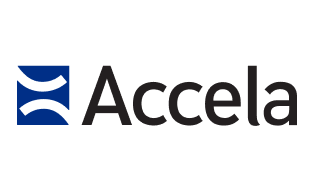The following article was originally posted on the National League of Cities’ CitiesSpeak blog on April 29, 2020.
As local officials across the country respond to the novel coronavirus, many are realizing there is a unique opportunity to rethink what the new normal should be. More importantly, how might it be better than where we’ve come from. I have already seen examples of great efforts emerging like the one from NLC to ensure that local governments of all sizes have the financial support they need that give me hope for a brighter future. I believe there are two positives that will come from this time we are experiencing now. 1) interactions between citizens and governments will be closer and more effective than ever before, and 2) the public tech sector will play an outsized role in making that happen.
I joined Accela more than 2-½ years ago because I saw the immense positive impact technology could have on how governments serve their citizens. Like many of the elected officials who attended CCC, I have always believed that by improving daily interactions between communities and their governments, we can improve society as a whole. Now, in what may be the most pivotal moment in our lifetimes, agencies cannot do it alone. Just as we rely on our cities and states to keep our communities safe and healthy, the private sector must do its part as well.
I have been inspired by some of the Herculean effort agencies are undertaking in partnership with volunteers and companies to keep their government running and deliver critical services in this time of crisis. Here is a glimpse into some of the stories of hope, collaboration, and innovation that can serve as a roadmap for how the public and private sector can continue to come together moving forward.
Leveraging Subject Matter Expertise from Volunteers and Organizations
An outpouring of incredible volunteers is stepping forward to offer leading-edge expertise to aid in the pandemic response and help solve problems more quickly. U.S. Digital Response is providing governments with a digital tool to directly request help from technology, data, and government professionals. These engineers, many of whom are volunteers, offer highly qualified technical support for agencies to expand the data, digital, and operational capacities of government. The group was formed by three former U.S. Deputy CTOs, including Code for America founder Jennifer Pahlka, and a former Facebook executive.
To get more personal protective equipment (PPE) in the hands of professionals, Project N95 is partnering with healthcare providers, medical equipment suppliers, and local governments across the nation to distribute life-saving equipment. The nonprofit created a unique database that matches suppliers with hospitals submitting requests for PPE, and local government partners can volunteer to serve as shipping or distribution centers and help “aggregate funding into single purchase orders of over 100K units.”
Partnering with Technology Sector for the Latest Digital Tools
A growing wave of technology entrepreneurs and companies have been harnessing their skills over the past couple of years to collaborate with, and better serve, government. Now, during this critical moment, they are mobilizing and joining the call to partner with cities in the unified fight against the spread of the virus.
Most recently, in an effort to help monitor and slow the spread of COVID-19, Google and Apple joined forces to provide a cross-platform contact tracing API for app developers to help public health agencies track potential exposure to the virus among communities. Government health organizations can also automate timely updates and responses to the public via a partnership between chat marketing platform ManyChat and Facebook Messenger, which are offering a free program that includes customizable tools to help reduce response latency for state and federal call centers.
In another example to equip public safety professionals and protect public health, Axon, a company that develops public safety technology, created Axon Citizen to allow police officers to gather case evidence from the community digitally. For instance, eyewitnesses can share photos or videos of an incident through text message or email to eliminate in-person interactions and help slow the spread of COVID-19. With a new system called ReadyNow from verified identity platform Merit, medical professionals now have access to instant digital licensing at no cost to help respond to urgent health needs locally and across state lines. Meanwhile, cities can also track the costs and impact from their COVID-19 response with a free app created by asset and operations management platform Cartegraph, expediting any reimbursement from the federal government to help aid budget shortages.
At Accela, over the last month, we have heard from our city and state customers about some of the biggest challenges they needed to solve to fight the growing pandemic. In response, we developed a suite of COVID-19 Response Solutions. These cloud-based solutions are designed to help all governments (not just our customers) navigate new modes of business operation during “shelter-in-place” and “social distancing” mandates, enable newly remote staff members to work effectively from home or in the field, and ensure that critical government services continue to run digitally.
Within a matter of weeks, we developed 12 new solutions. They include tools to build safe temporary structures and medical facilities using digital applications and mobile inspections and help quickly get more nurses and doctors on the front lines by streamlining online certification processes. Time is vital, so these solutions can be rapidly implemented in as little as 24-72 hours, and Accela is prepared to partner with any agency to ensure they can support their citizens during this time, regardless of resource constraints.
We are continually inspired and motivated by the nimbleness of our customers, and it helps us continue to push forward as we create what’s next for the future of government. While cities and local leaders are feeling the weight and severity of COVID-19’s impact during this new, unstable reality, I firmly believe that we will meet this crisis and create a newly reimagined future, together. What does that future look like for you?




